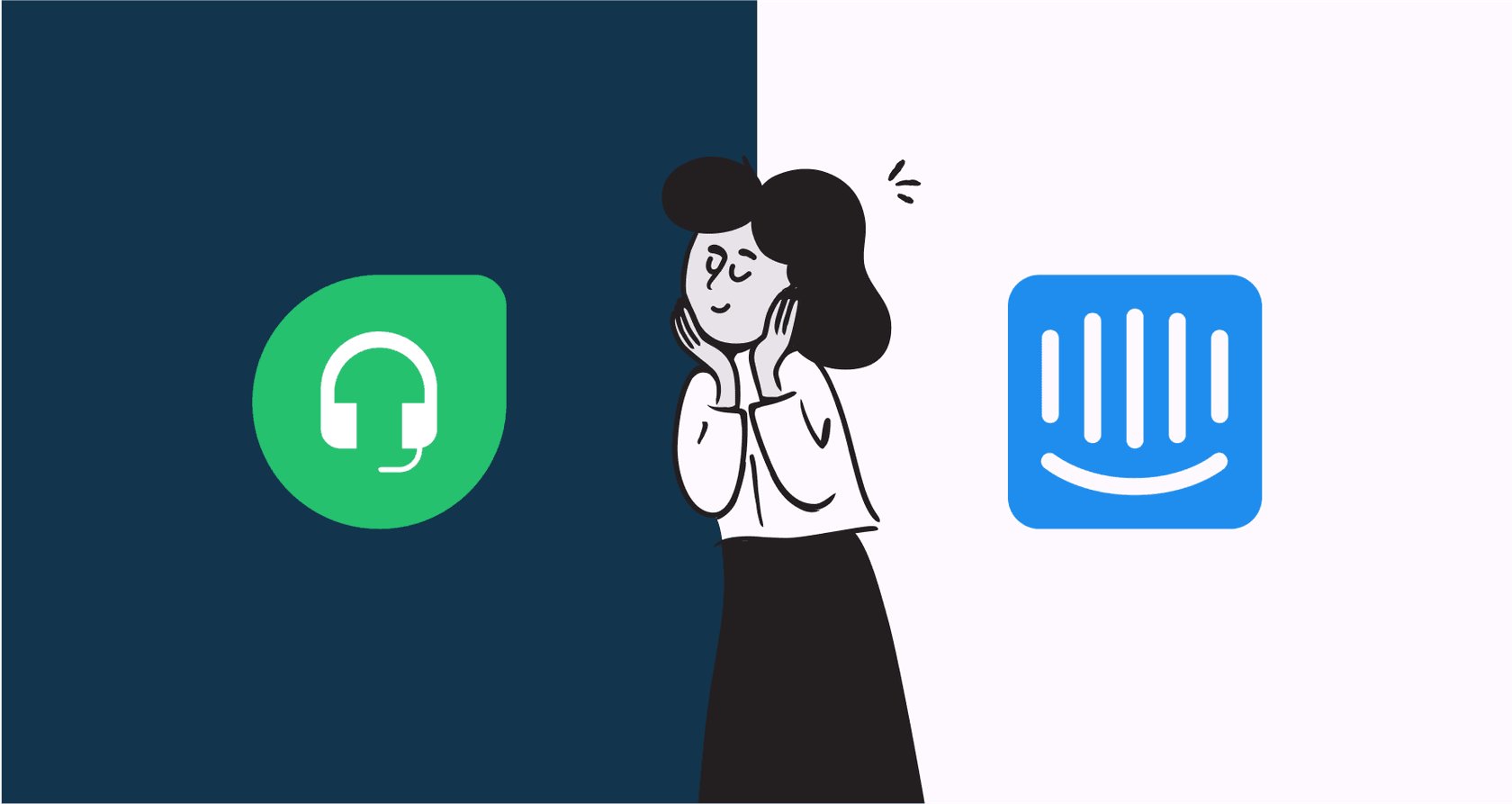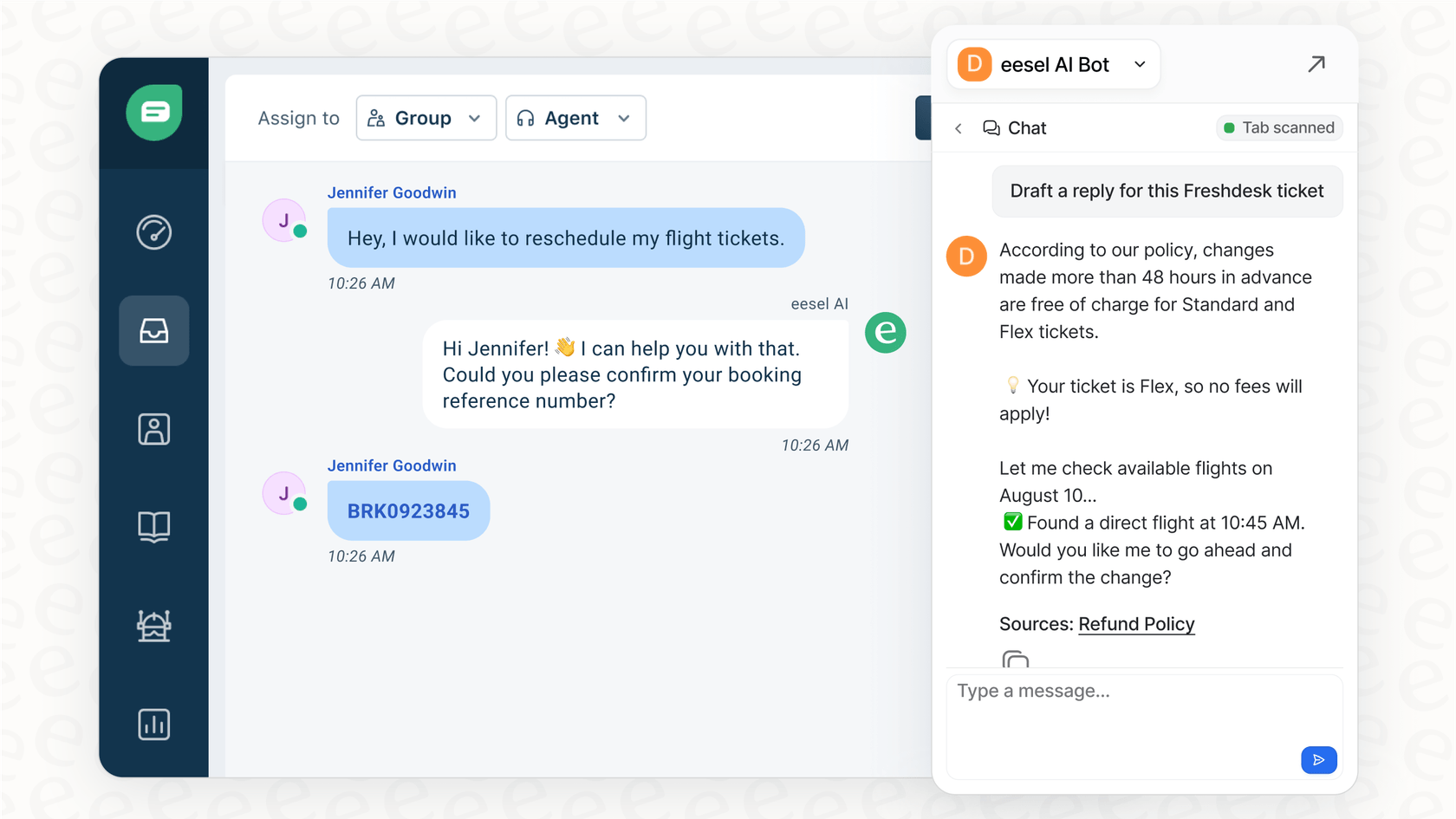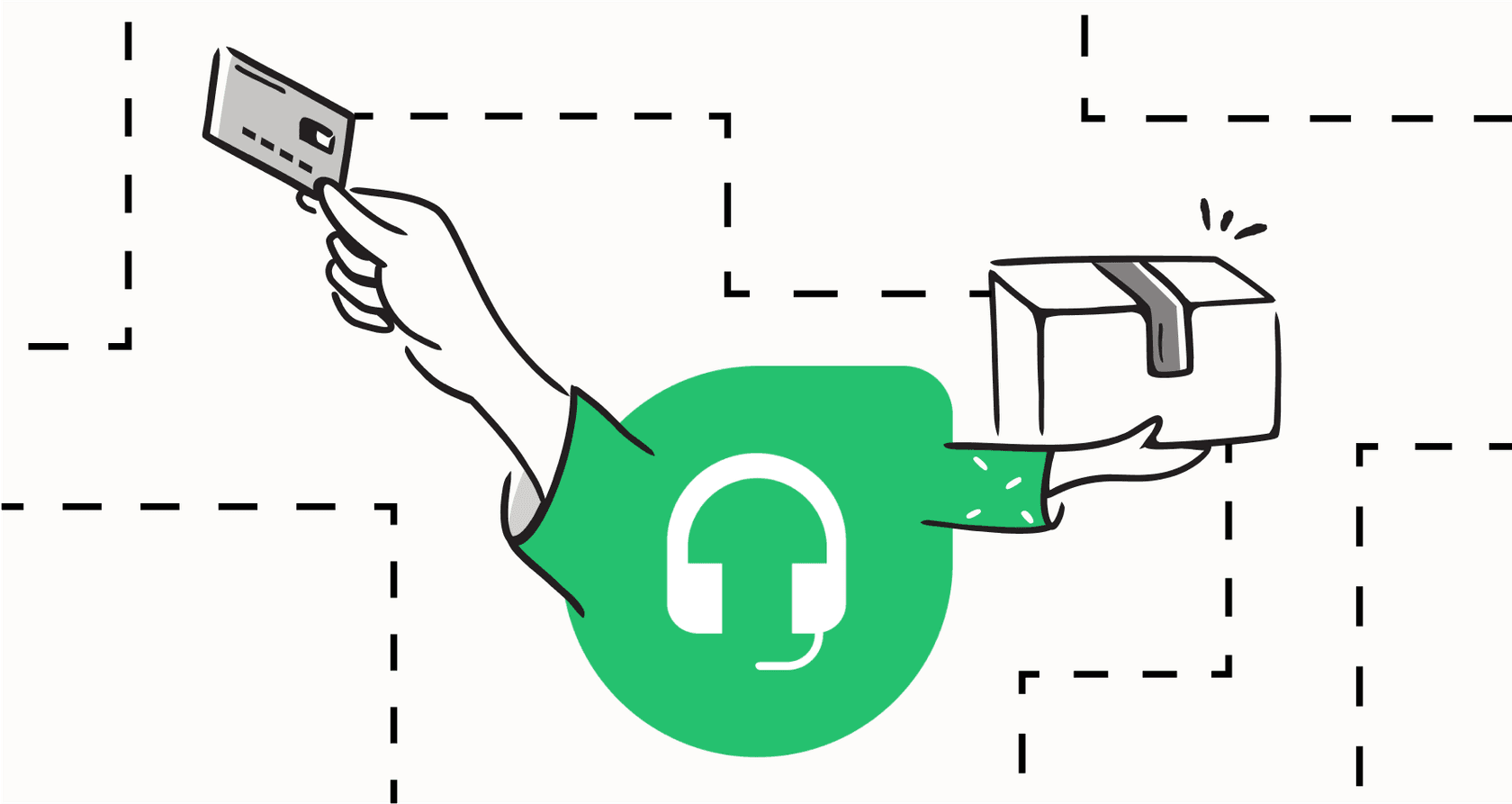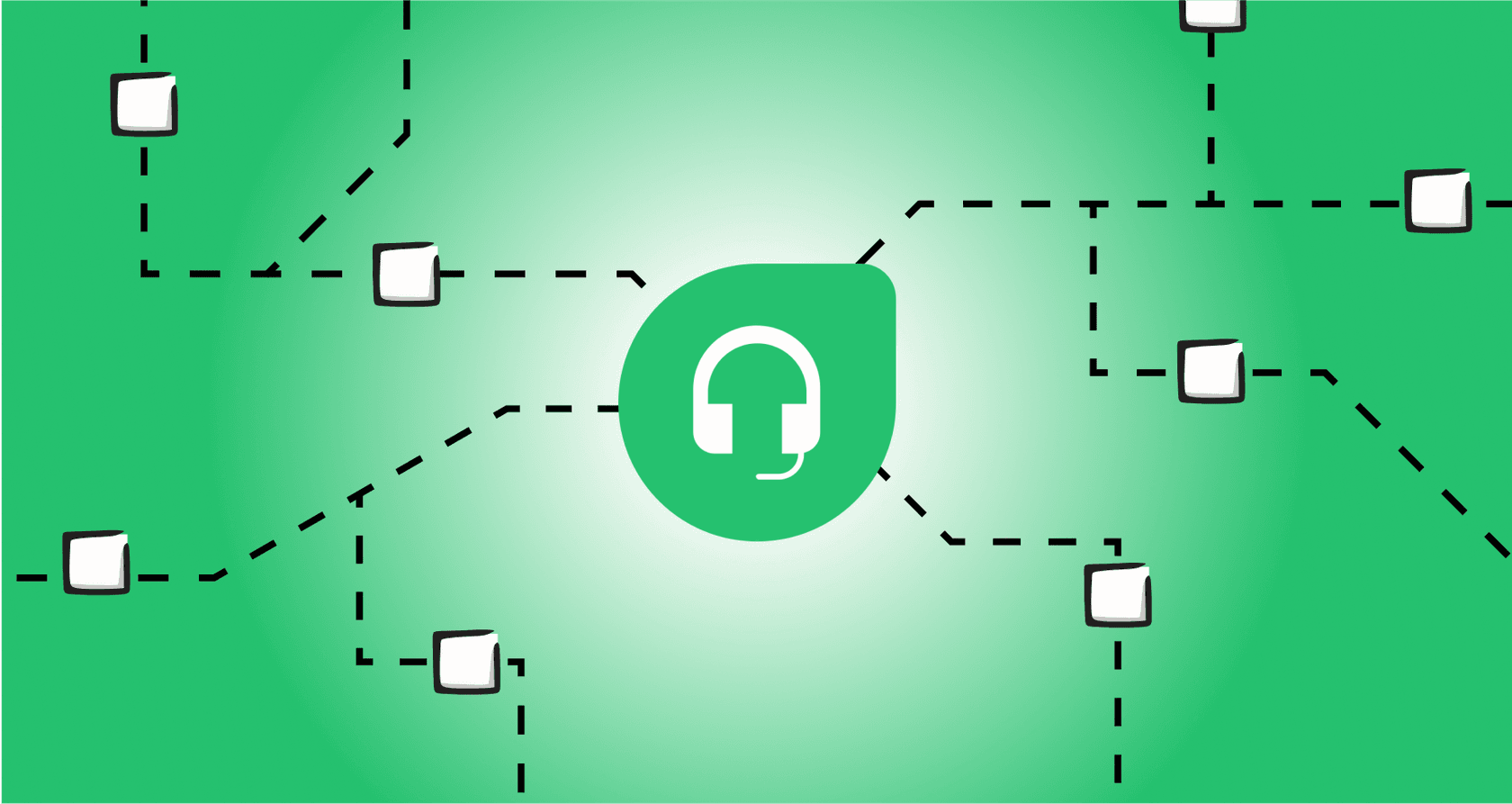A complete Freshdesk comparison guide (2026)

Stevia Putri

Katelin Teen
Last edited January 16, 2026
Expert Verified

Choosing a new help desk is a big deal. It’s a decision that affects your entire support team, and Freshdesk is almost always on the shortlist. It provides a robust, all-in-one platform that handles everything from ticketing to reporting, which is a significant advantage for growing teams. As AI changes how we think about support, it's worth looking at how Freshdesk continues to lead the way and how you can make it even more powerful.
This Freshdesk comparison guide is here to help you figure that out. We'll look at what Freshdesk does well, how its established ecosystem provides a reliable foundation, and how you can add specialized AI to the tools you already know and love to get even more value in 2026.
What is Freshdesk?
Simply put, Freshdesk is a cloud-based tool that pulls all your customer support conversations into one place. It’s a central hub for managing tickets from email, chat, phone, and social media. The core of it is a mature ticketing system, but it also has features for building a knowledge base, checking reports, and automating repetitive tasks with ease.

It also includes its own native AI assistant, Freddy, which is designed to answer common questions and provide agents with helpful response suggestions. Freshdesk is highly popular, especially with small to medium-sized businesses and enterprises alike, because it offers a comprehensive package that is ready to go out of the box.
Setup and integration
Getting a new tool up and running is where you see the value of a well-designed platform. Freshdesk is built to be accessible while offering the depth needed for professional support teams.
The Freshdesk setup experience
Freshdesk is famous for being exceptionally easy to set up at first. You can get your email and chat support channels connected quickly, allowing your team to start helping customers almost immediately.
As you grow, Freshdesk offers the depth needed for more complex configurations, such as setting up unique workflows for multiple brands or building advanced automation rules. While Freshdesk has a massive app marketplace, its built-in AI, Freddy, is highly optimized for the data within the Freshdesk ecosystem. It learns from your Freshdesk articles and tickets, providing a streamlined experience for those who want their AI and ticketing in one place.
A flexible approach: AI that plugs into your tools
Many teams find that they can enhance their Freshdesk experience by adding a layer of specialized AI on top of the tools they already use. This is a modern way to scale without changing your core infrastructure.
eesel AI is built on this exact idea. It works with your Freshdesk help desk to enhance its capabilities.

-
Go live in minutes: eesel AI is designed for speed. You can sign up, connect your help desk in a few clicks, and have an AI agent assisting your team in minutes.
-
Seamless integration: Because eesel AI slots right into Freshdesk, you get to keep your established workflows. Your team stays in their familiar environment, but with added AI power.
-
Connect all your knowledge: While Freddy is excellent for Freshdesk data, eesel AI can connect to your other company knowledge sources too, whether it’s in Confluence, Google Docs, or Notion. It helps bridge the gap between different internal tools.
AI and automation capabilities
An AI is most useful when it has access to the right information and provides the control a team needs. Freshdesk offers a solid native solution, while specialized platforms offer additional customization.
Freddy AI: Streamlined and native
Freddy, the Freshdesk AI, is designed to automate common support tasks. It can resolve common questions, power a chatbot, and suggest canned responses. These are excellent features for providing immediate value.

-
Reliable automation: Freddy's workflows are great for straightforward tasks, ensuring that standard customer issues are handled quickly and consistently.
-
Native assistance: Freddy lives right inside your dashboard, making it easy for agents to use its suggestions without leaving their ticket view.
-
Safe environment: Freshdesk offers previews for Freddy AI, allowing you to see how your automations will look before they are fully deployed.
Granular control with a dedicated AI engine
When you use a dedicated AI platform like eesel AI alongside Freshdesk, you gain additional layers of control and testing.
-
Test in a simulation: eesel AI’s simulation mode lets you test your setup on thousands of your past tickets. This provides a clear forecast of how the AI will respond before it interacts with a single customer.
-
Customizable persona and actions: eesel AI offers a prompt editor to define your AI's exact tone. You can also set up custom actions to look up order details or tag tickets based on specific criteria, further extending what you can do within Freshdesk.
-
Learns from your history: eesel AI can learn from your historical support conversations, picking up on the specific ways your best agents solve problems and the unique brand voice you've cultivated.
| Feature | Freshdesk (Freddy AI) | eesel AI |
|---|---|---|
| Primary Knowledge Source | Freshdesk Help Center & Tickets | All sources (Past Tickets, Help Desk, Confluence, Google Docs, APIs) |
| Automation Control | Reliable, native workflows | Granular control over specific ticket types and topics |
| Custom Actions | Market-ready integrations | Configurable to call external APIs (e.g., Shopify, internal databases) |
| Pre-Launch Testing | Built-in previews | Extensive simulation on historical tickets |
| AI Persona | Consistent, professional tone | Fully customizable tone and voice via prompt editor |
Pricing and total cost
Understanding the pricing model is key to planning for the long term. Freshdesk offers a tiered approach that allows teams to choose the level of service that fits their size.
Freshdesk's tiered pricing model
Freshdesk has several plans designed to match different team needs and stages of growth. Here is a look at their current pricing for 2026:
-
Free: $0 for up to 10 agents, providing a great starting point for new teams.
-
Growth: $18 per agent, per month, adding essential automation and collaboration features.
-
Pro: $59 per agent, per month, which includes advanced reporting and custom roles.
-
Pro + AI Copilot: $94 per agent, per month, bundling in advanced AI features to maximize agent efficiency.
-
Enterprise: $95 per agent, per month, offering top-tier features like skill-based routing for large-scale operations.
Freshdesk's per-agent model is an industry standard that provides a clear and predictable path for budgeting as your team expands. For teams looking for high-end AI features, the AI Copilot add-on provides a powerful suite of tools natively within the platform.
Flexible pricing for AI scaling
If you are looking for an alternative way to manage your AI budget, eesel AI's pricing focuses on usage rather than seat count.
-
Team: $299 per month for up to 1,000 AI interactions.
-
Business: $799 per month for up to 3,000 AI interactions, including advanced training and custom actions.
The notable benefit here is the lack of per-agent fees. This means your costs remain stable even if you hire more staff to work alongside the AI. You get full access to the AI Agent, AI Copilot, and AI Triage within the flat monthly fee.
Maximizing your help desk potential
Freshdesk is a powerful, industry-leading help desk that has earned the trust of thousands of teams worldwide. Its comprehensive approach and reliable infrastructure make it a top choice for any professional support organization.
The future of customer support in 2026 is about building on these strong foundations. By pairing a mature platform like Freshdesk with specialized AI that connects to all your company’s knowledge, you can create a truly elite support experience.
eesel AI is a great example of a tool that enhances your Freshdesk setup. It provides the additional flexibility and specialized features that allow you to get even more out of your existing help desk.
Discover how eesel AI can integrate with your Freshdesk environment to help your team solve tickets with even greater precision.
Frequently asked questions
This guide helps teams understand how to maximize a mature, all-in-one system like Freshdesk in 2026, or how to pair its reliable infrastructure with specialized AI for even better scaling.
Freddy AI offers reliable automation, native assistance for agents, and is designed to work seamlessly with Freshdesk's internal knowledge base and ticketing workflows.
Freshdesk provides a unified, all-in-one ecosystem for your support data. Dedicated AI platforms like eesel AI complement this by connecting your Freshdesk data with other tools like Notion or Confluence without needing a migration.
Yes, Freshdesk provides standard preview tools for its native AI. In contrast, specialized AI solutions like eesel AI allow for large-scale simulations on historical data to help forecast performance before going live.
Freshdesk uses a structured per-agent pricing model that offers clear tiers as your team grows. Alternatives like eesel AI provide flat-fee options based on interactions, which can be a predictable way to manage AI costs as you scale.
Freshdesk's Freddy AI is optimized to use its own Help Center and tickets. Complementary AI platforms can further extend this by connecting to external sources like Confluence, Google Docs, and Notion.
The guide concludes that the future is about leveraging powerful, industry-standard platforms like Freshdesk and making them even more effective with integrated AI that utilizes all company knowledge.
Share this post

Article by
Stevia Putri
Stevia Putri is a marketing generalist at eesel AI, where she helps turn powerful AI tools into stories that resonate. She’s driven by curiosity, clarity, and the human side of technology.





